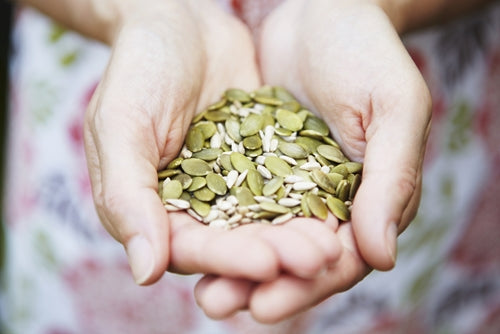Contrary to popular belief, and despite what the latest health magazine may tell you, cholesterol levels are not the biggest culprit when it comes to heart disease. In fact, there may not even be such s thing as the presumed "good" and "bad" cholesterol. According to the June 2012 Blaylock Wellness Report, the distinction between low-density lipoprotein (LDL) "bad" cholesterol and high-density lipoprotein (HDL) "good" cholesterol is not as black and white as once believed.
LDL cholesterol
It was once common practice for doctors and physicians to encourage their patients worried about heart health to increase their levels of HDL cholesterol while also working to lower LDL levels. However, continuously emerging research has been raising red flags for quite some time now and when it comes to heart disease, the levels of cholesterol may not even play that big of a role at all, reported the Blaylock Wellness report. Evidence has concluded that there are actually two different kinds of LDL cholesterol and it is the smaller, denser particles of LDL that are more concerning. These tiny molecules are easily oxidized while the other, larger particles may in fact help protect the heart. It is those oxidized cholesterol levels in particular, that may cause more of a problem.

Prevention
When plaque builds up inside of the body's arteries, atherosclerosis can occur and lead to even more serious and dangerous health problems such as stroke, heart disease and even heart attack, according to the National Heart, Blood and Lung Institute. But preventing atherosclerosis is not just about keeping cholesterol numbers low. When it comes to protecting your heart, prevention is always better than treatment. Taking care of your body by eating a plant-rich, healthy diet and engaging in regular physical activity are both key for prevention.
Eliminate trans fats and saturated fats
If you or a loved one is concerned about the risk of atherosclerosis, the first step is to begin removing sources of trans and saturated fats from your diet, reported Harvard Women's Health Watch of Harvard Health Publications. Saturated fats and dietary cholesterol come from animal products such as butter, poultry, fatty flesh like red meat and full-fat and low-fat dairy products. From the very beginning, God created our bodies to consume only what was sowed of the Earth:
"Do not eat animal fat or blood," (Genesis 9:4, Leviticus 3:17; 7:23-27; 17:10-14, Deuteronomy 12:16).
"A biblical plant-based diet is key for good heart health."
Thus, consuming the foods that we were intended to - a biblical plant-based diet consisting mainly of raw fruits and vegetables that is the cornerstone of the Hallelujah Diet - is crucial for heart health. Trans fats should be easier to avoid as these are manufactured to prolong the shelf life of packaged foods, according to Harvard Women's Health Watch. By avoiding highly processed, packaged foods altogether, you can eliminate trans fats from your diet.
Consume fruits, vegetables and plant-based foods
Those who take proper care of the body as He wishes, "The diet God gave people at the beginning of Creation was fruit, vegetables, grains, nuts and seeds," (Genesis 1:29, 2:16; 3:18) are naturally on their way to good heart health. Fruits and vegetables are great sources of fiber and cholesterol-blocking molecules and avocados, nuts and seeds are great sources of healthy fats that can help to maintain healthy levels of cholesterol.
Stay active
The U.S. Centers for Disease Control and Prevention reported that those who carry extra weight or are obese have a higher risk of heart disease and recommended engaging in regular physical activity to help maintain a healthy weight. Keeping a healthy weight can help to lower blood pressure.

Guidelines for adults to stay healthy and active from the Surgeon General are to engage in at least 2 1/2 hours of moderate-intensity exercise each week with two days or more of muscle-strengthening activities, reported the source. Moderate-intensity fitness can include brisk walking or biking. The strengthen training should work all major muscle groups: abdomen, chest, shoulders, hips, back, arms and legs. Alternatively, if you choose to engage in vigorous-intensity aerobic activity such as jogging or running, the CDC advised 1 hour and 15 minutes of activity per week, along with two or more days of strength training.
Take advantage of the Cardiovascular Support System
If you feel as though you are not getting enough of the nutrients and cholesterol-fighting molecules, you're not alone. The body itself is truly miraculous and when you begin to consume a whole, raw, plant-based diet and remove toxins and additives, you will be amazed as you watch the body slowly start to heal itself. For heart health in particular, the Hallelujah Diet together with the Hallelujah Diet Cardiovascular Support System provides your body with the resources necessary to rebuild and restore.
The Hallelujah Diet™ Cardiovascular Monthly Maintenance Support Kit includes all of the fundamental supplements you need to take care of your health and your heart simultaneously. The kit includes BarleyMax, B-Flax-D, Digestive Enzymes, Pharmax Finest Pure Fish Oil and New Generation Bio Curcumin.







